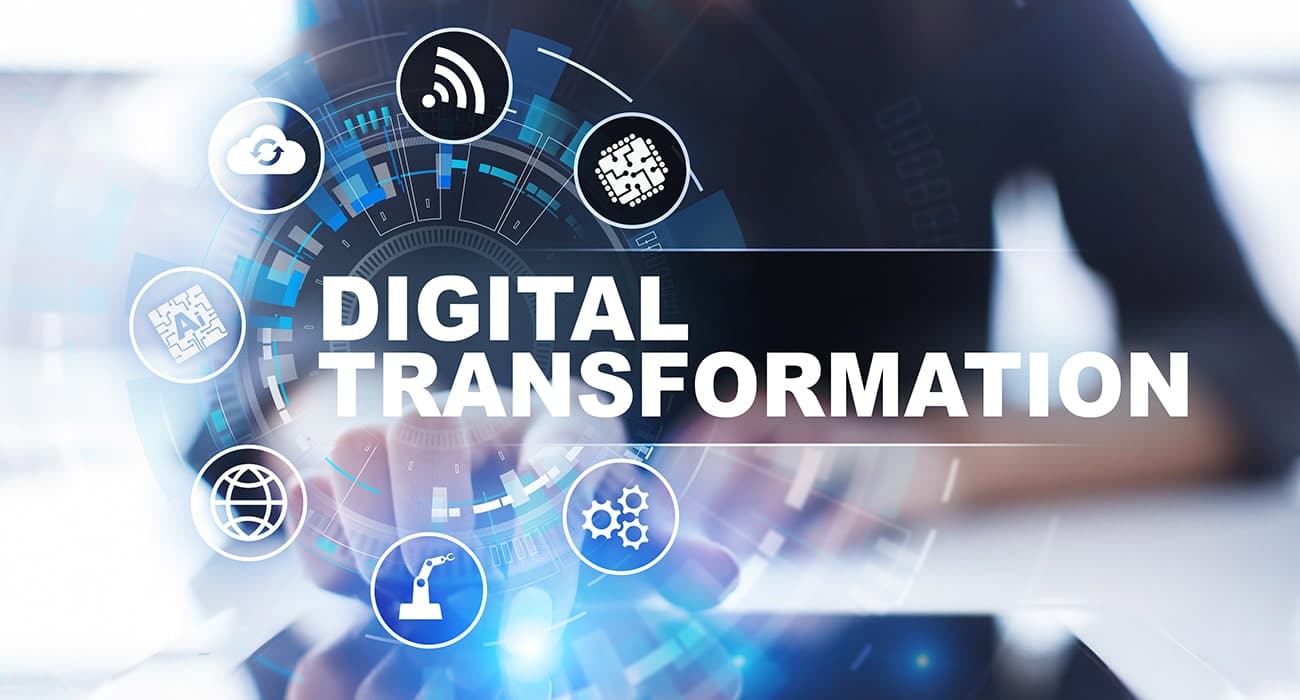Wenn es eine Sache gibt, in der sich erfolgreiche Geschäftsinhaber auszeichnen, dann ist es die Anpassung.
Sie haben die unglaubliche Fähigkeit, nicht nur die Veränderungen in ihrer Branche zu erkennen, sondern auch ihren Fokus und ihre Arbeitsabläufe an die ständig stattfindenden Veränderungen anzupassen.
Das Interessanteste ist, dass die Anpassung an diese Veränderungen nicht nur eine Methode ist, um die besten Unternehmen an der Spitze zu halten, sondern auch, um angeschlagenen Marken dabei zu helfen, sich an ihren Konkurrenten vorbeizumogeln.
Nokia ist das perfekte Beispiel für ein Unternehmen, das weiß, wie man sich umorientiert.
Sie sind vielleicht dafür bekannt, dass sie das einst unzerstörbarste aller Mobiltelefone entwickelt haben, aber sie begannen in den späten 1800er Jahren als Papier- und Zellstoffunternehmen.
Bevor sie ihr erstes Mobiltelefon herstellten, hatten sie ihren Schwerpunkt auf die Herstellung von Gummi und Kabeln verlagert.
Heute, unterhalten sie ein Multi-Milliarden-Dollar-Geschäft indem sie Telekommunikationsunternehmen wie AT&T und Verizon mit den Materialien beliefern, die sie benötigen, um ihre Kunden in Verbindung zu halten.
Nokia ist der Inbegriff eines Unternehmens, das weiß, wie man sich neu orientiert. Eine Marke, die wie kaum ein anderes Unternehmen in der Lage ist, ihre Aktivitäten und ihre Partner zu wechseln, um an der Spitze ihres finanziellen Spiels zu bleiben.
Sie müssen ein wenig Nokia in den allgemeinen Wachstumsplan Ihres Unternehmens einfließen lassen.
Die eigentliche Frage ist: Auf welche Bereiche sollten Sie sich 2018 und darüber hinaus konzentrieren? Was sollten Sie in Ihrem Unternehmen einführen, um weiterhin zu dominieren?
Nun, ich werde gleich auf die Einzelheiten eingehen, aber zunächst müssen Sie eines über die sich verändernde Landschaft der heutigen Verbrauchererwartungen verstehen. Sie müssen die Grundlagen der digitalen Transformation verstehen.
Was ist digitale Transformation?
Digitale Transformation ist die Einführung verschiedener digitaler Kommunikations- und Betriebsmethoden, um die Wirkung und Effektivität Ihres Unternehmens zu steigern.
Im Allgemeinen lassen sich die Aktionen und Auswirkungen der digitalen Transformation in eine der folgenden sechs Kategorien einordnen eine der folgenden sechs Kategorien.

Sie sind jedoch nicht nur auf diese sechs Bereiche beschränkt.
Denken Sie an Dinge, die es vor 10 Jahren noch nicht gab, die aber heute weit verbreitet sind, und Sie haben eine gute Vorstellung davon, was digitale Transformation bedeutet.
Da Mobiltelefone als Haupteinkaufsgerät verwendet werden, sind Einzelhandelsmarken gezwungen, ihr Geschäft umzustellen und sich auf das Mobiltelefon zu konzentrieren.
In größerem Maßstab haben wir den Übergang vom Ausleihen von Videos bei Blockbuster zur modernen Abhängigkeit von Streaming-Diensten wie Netflix, Amazon Video und sogar Plattformen wie Twitch und Youtube.
Selbst etwas so physisches und „nicht-digitales“ wie ein Restaurantbesuch hat sich mit Uber Eats und Deliveroo in ein digitales Erlebnis verwandelt.
Kurz gesagt, die Art und Weise, wie Verbraucher mit Unternehmen interagieren, ändert sich. Ihre Erwartungen haben sich geändert, sie verlangen schnellere Antworten, mehr Selbstbedienung und die Möglichkeit, komplette Einkäufe über mehrere Kanäle in ihrer eigenen Zeit zu erledigen.
Wie Sie die sich ändernden Erwartungen Ihrer Kunden erfüllen
Die Nokias von morgen werden die Marken sein, die die Idee der digitalen Transformation schon heute mit ganzem Herzen annehmen. Es werden die Unternehmen und Führungskräfte sein, die verstehen, dass in den nächsten 5-10 Jahren fast alle Kundenbeziehungen und Verkäufe über digitale Mittel abgewickelt werden.
Sie werden die Marktführer von morgen sein, weil sie bereits die Prozesse und Methoden eingerichtet haben, um die veränderten Kundenerwartungen zu erfüllen.
Wenn Sie dazugehören wollen, müssen Sie die unten aufgeführten Kundenerwartungen prüfen und die von uns empfohlenen Änderungen umsetzen.
Ein nahtloses, geräteübergreifendes Kundenerlebnis
Von Jahr zu Jahr scheint es mehr Geräte mit Internetanschluss zu geben.
Sie können jetzt Kühlschränke, Mülleimer und sogar Haarbürsten kaufen, die mit dem Internet verbunden sind.
Wir sind uns zwar ziemlich sicher, dass sich viele dieser Angebote nicht durchsetzen werden, aber Tatsache ist, dass die Menschen immer mehr Geräte verwenden, um online nach Produkten zu suchen und mit Unternehmen zu interagieren.
Im Kern sollte Ihr Unternehmen seine verschiedenen Kanäle über eine Form von Cloud-Service verbinden, um eine vollständige 360-Grad-Sicht auf Ihren Kunden zu erhalten.
Viele Marken haben die Integration von Cloud-Technologie bereits als Cloud-Technologie als oberste Priorität erkannt.

Und das aus gutem Grund. Bei der Untersuchung der Customer Journey Criteo hat herausgefunden, dass 30% aller Desktop-Transaktionen mindestens 1 Klick auf dem Handy vorausgegangen ist.

Aber was bedeutet das in Bezug auf die tatsächliche Nutzung und ohne all die relevanten Schlagworte der Branche?
Wenn ein Kunde im Bus auf dem Weg zur Arbeit ein Produkt sieht, das ihm gefällt, und es in seinen Einkaufswagen legt, ohne es zu kaufen, sollte er später am Tag auf seinem Desktop, Tablet oder einem anderen Gerät genau dort weitermachen können, wo er aufgehört hat.
Die Reise sollte ganz einfach an dem Punkt fortgesetzt werden, an dem sie sie verlassen haben. Keine Kämpfe, keine Reibereien.
Sie müssen alle Ihre Kundendaten in der Cloud speichern und sie über alle Geräte hinweg miteinander verknüpfen, um eine nahtlose Customer Journey zu ermöglichen.
Personalisierter Service
Wenn es etwas gibt, das Ihre Kunden garantiert frustriert, dann ist es, sie so zu behandeln, als seien sie nichts weiter als eine weitere Nummer.
Eine der wichtigsten Erwartungen, die sich mit dem Wachstum der digitalen Technologien verändert hat, ist, als Individuum behandelt zu werden.
Ihre Kunden wollen keine generischen E-Mails und offensichtlich vorgefertigte Korrespondenz. Sie wollen das Gefühl haben, dass sie geschätzt werden, und der einfachste Weg, dies zu erreichen, ist, sie als den individuellen Menschen zu behandeln, der sie sind.
Accenture berichtet sogar, dass 75% der Kunden zugeben, dass sie eher von einer Marke kaufen würden, die ihre Antworten personalisiert.
Die Menschen kaufen nicht nur eher bei Marken, die ihre Korrespondenz personalisieren, sondern sie haben auch nichts dagegen, Informationen mit diesen Marken zu teilen, wenn dies den Service beschleunigt.

Das mag keine große Sache sein, aber in einer Welt mit GDPR, in der die Erhebung von Kundendaten zu einem sehr umstrittenen Thema geworden ist, kann die Fähigkeit, die Nutzer an Bord zu holen und sie zur Weitergabe ihrer Informationen zu bewegen, der Schlüssel zu einem effektiveren und profitableren Betrieb sein.
Personalisierung ist nichts, worüber Sie nachdenken sollten, sondern etwas, das Sie tun müssen.
Ein Bedarf an sofortigen Antworten
Eine der größten Frustrationen der Verbraucher ist das lange Warten auf eine einfache Antwort.
Wir alle haben uns schon einmal an eine Marke gewandt und etwas Ähnliches wie das Folgende erhalten.

Eine sofortige Antwort, die uns mitteilt, dass wir 24 Stunden warten müssen, bevor sich ein echter Mensch um unser Problem kümmern kann. Ärgerlich, nicht wahr?
Das ist eine riesige verpasste Chance. In der Tat, die schneller Sie auf Kundenanfragen reagieren desto mehr Umsatz und Ertrag können Sie erwarten.

Die modernen Verbraucher sind beschäftigt und ungeduldig. Je schneller Sie ihnen helfen können, desto wahrscheinlicher ist es, dass sie Ihre Marke positiv bewerten und bei ihrem nächsten Einkauf wiederkommen.
Aus diesem Grund greifen viele Marken auf Live-Chat-Software zurück, um die Erwartung ihrer Kunden nach sofortigen, auf ihre Bedürfnisse zugeschnittenen Antworten zu erfüllen.
Da der Kunde mit einem echten Menschen spricht, ist die Antwort immer schnell. Außerdem ist es sehr persönlich, so dass Sie zwei Fliegen mit einer Klappe schlagen.
Selbst wenn Sie gerade nicht im Büro sind oder einen Ansturm neuer Anfragen zu bewältigen haben, werden Live-Chat-Lösungen wie edesk oft mit einer Art von Vorlagen geliefert, die sich dank der Personalisierungs-Tags persönlicher anfühlen als die generischen E-Mails, die wir so gewohnt sind.
Live-Chat und Conversational Commerce werden schon sehr bald die Methode der Wahl sein, wenn es darum geht, den Umsatz und den Kundenservice im Internet zu steigern.
Mobil zuerst
Das Geheimnis eines effektiven Marketings und Kundendienstes war schon immer, dorthin zu gehen, wo Ihre Kunden sind.
Machen Sie es den Kunden leicht, Ihre Marke zu finden und mit Ihnen zu interagieren, und Sie werden sehen, wie Engagement und Umsatz in die Höhe schnellen.
In den letzten 5 Jahren haben wir eine erwartete Verschiebung hin zu mobilen Geräten gesehen, die von den Verbrauchern am meisten genutzt werden. Nicht nur, dass die mobilen Suchanfragen 2015 die Desktop-Suchanfragen überholt haben, es wird auch erwartet, dass die Nutzung der Plattform weiterhin astronomisches Wachstum bis 2020 und darüber hinaus.

Das bedeutet, dass sich mehr Ihrer Nutzer zuerst an ihr mobiles Gerät wenden, um Rat und Unterhaltung zu suchen.
Wenn Sie immer noch zuerst für Desktop-Benutzer optimieren, werden Sie es schwer haben, eine kontinuierliche Wirkung zu erzielen, wenn sich der Verkehr auf mobile Geräte verlagert.
Mobile first ist das Motto des modernen Vermarkters. Sie müssen Ihre Website und Ihre Aktionen für mobile Benutzer optimieren, bevor Sie überhaupt an etwas anderes denken.
Wenn Sie dies tun, sind Sie in der besten Position, um im nächsten Jahrzehnt zu dominieren.
Schaffen Sie unglaubliche Erlebnisse
Bei all dem geht es darum, ein Erlebnis zu schaffen, das der Verbraucher nicht vergessen kann.
Nach Angaben von MarketingWeek;
„Die Mehrheit der Verbraucher (62%) ist bereit, für ein einfaches Erlebnis mehr zu bezahlen, so eine neue Studie. 61% würden eine Marke weiterempfehlen, wenn sie ein klares Angebot hat, das ihnen Zeit spart.
Die Erfahrung, die Sie den Nutzern bieten, ist der Schlüssel.
Sie müssen jedoch nicht unbedingt ein unglaublich großartiges Erlebnis schaffen, bei dem es für jeden erfolgreichen Verkauf Hörner und Trompeten gibt, sondern eher etwas, das für die Verbraucher einfach und leicht zu bedienen ist.
Das ist der Schlüssel zur Verbesserung des Kundenerlebnisses.
Machen Sie es einfach, aber effektiv. Helfen Sie Ihren Nutzern, das Gewünschte in kürzester Zeit zu erreichen, und sie werden es Ihnen danken, indem sie kaufen und wiederkommen, um erneut zu kaufen.
Wenn Sie nicht sicher sind, wo Sie anfangen sollen, um die Art von Erfahrung zu bieten, nach der sich moderne Benutzer sehnen, empfehlen wir Ihnen den Live-Chat.
Die Welt basiert auf der Kraft von Gesprächen, die wir miteinander führen. Kommunikation ist der Schlüssel zu allem, was wir tun, und die Optimierung dieses Prozesses wird die Qualität Ihrer Marke in den Augen Ihrer Kunden nur steigern.
eDesk ist der führende Helpdesk für Online-Verkäufer, der speziell für die Anforderungen des E-Commerce entwickelt wurde. Melden Sie sich jetzt für eine kostenlose 14-tägige Testversion an und überzeugen Sie sich selbst von den Vorteilen für Ihr Unternehmen.
Mehr lesen
Der ultimative Leitfaden für den Kundenservice im E-Commerce
Wie außergewöhnlicher Kundenservice eine schnelle Lieferung übertrifft

